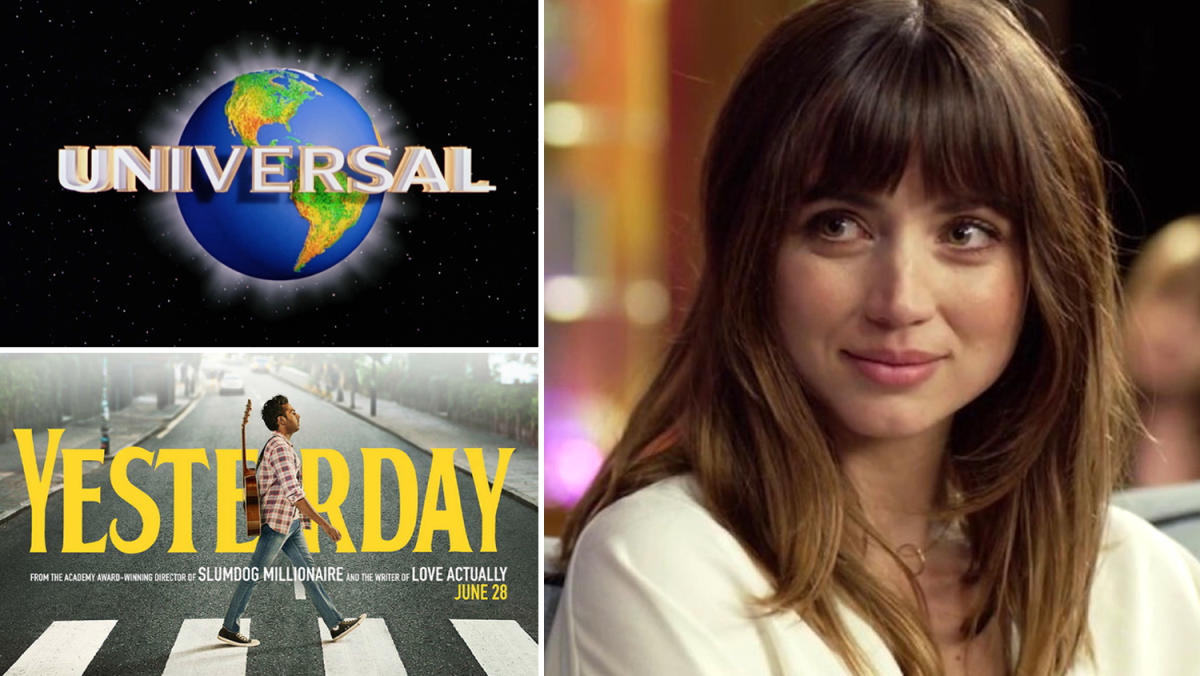
No False Advertising! Ana de Armas’ Absence From ‘Yesterday’ Flick Puts Trailers In Legal Spotlight

Yesterday, Universal’s troubles suddenly weren’t so far away, at least when it comes to Ana de Armas’ absence from the 2019 Danny Boyle-directed flick Yesterday.
“Universal is correct that trailers involve some creativity and editorial discretion, but this creativity does not outweigh the commercial nature of a trailer,” wrote U.S. District Judge Steven Wilson in a December 20 ruling on the studio’s mainly failed motion to dismiss a potential class action first filed back in January by Paul Michael Rosza and Conor Woulfe.
More from Deadline
“At its core, a trailer is an advertisement designed to sell a movie by providing consumers with a preview of the movie,” the federal judge went on to say in the ruling (read it here).
Trailer version of the $5 million suit: In July and October of 2021, Maryland-based Woulfe and California-based Rosza saw a trailer for the Himesh Patel-lead rom-com that featured de Armas as a love interest. At $3.99 a piece on Amazon Prime Video, both fans soon after rented the film about a musician who wakes up knowing all the Beatles songs in a world where the Beatles never existed. One catch (in a deep voice): de Armas was nowhere to be found in the picture.
The now Blonde actress had been cut from Yesterday entirely.
“I think the audience did not like the fact that his eyes even strayed,” screenwriter Richard Curtis told Cinamablend in 2019 of Patel’s Jack Malik and why de Armas’ character Roxanne, plus the subplot surrounding her, was left on the cutting-room floor.
That may be the artistic and narrative reason, and that’s fair. However, Woulfe and Rosza felt conned by the presence of de Armas in the Yesterday trailer, and didn’t like being taken for suckers. “Defendant’s advertising and promotion of the movie Yesterday is false, misleading, and deceptive,” their January 21 lawsuit declared of Universal.
Despite the Comcast-owned studio and their Munger Tolles and Olson attorneys’ best effort to put the lawsuit in the past, Wilson agreed with a lot of where the plaintiffs and their army of lawyers were coming from.
“In sum, Universal has pointed to no non-commercial speech that could be intertwined with the trailer and, the inextricably intertwined exception to the commercial speech doctrine does not apply,” he wrote Tuesday in an advancement of the matter to discovery and potential class certification. “Thus, because Plaintiffs have plausibly alleged that the trailer is false, commercial speech, Plaintiffs may proceed with their claims without offending the First Amendment.”
Although Wilson also made a point of saying in his ruling that “the Court’s holding is limited to representations as to whether an actress or scene is in the movie, and nothing else,” his ruling could complicate things in the loosey-goosey galaxy of trailers. With this example far from the first time a Hollywood movie trailer has featured someone ultimately not in or barely in a film, or even footage not from the pitched picture, the big picture rub here is that the hyperbole visually, verbally and otherwise of trailers may have to be toned down or risk big bucks liability.
Universal did not respond to request from Deadline for comment on the Yesterday ruling. Typically, Comcast-owned companies put out a standard line of not commenting on litigation when they do respond to questions about litigation. Universal will have to respond to the ramifications of the ruling in court eventually, and then the December 20 decision itself could prove a trailer to a much more epic event.
Best of Deadline
Sign up for Deadline’s Newsletter. For the latest news, follow us on Facebook, Twitter, and Instagram.
